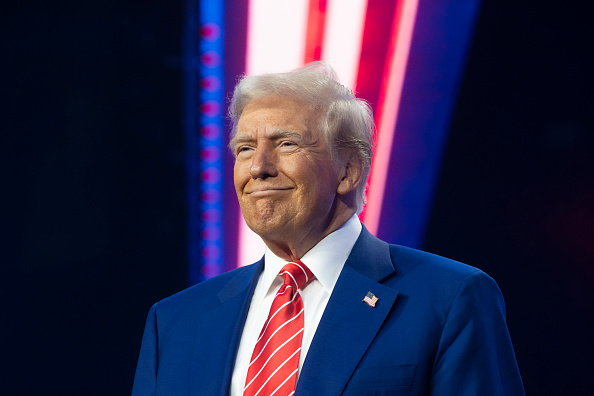Republican President-elect Donald Trump has promised to grant clemency to at least some of his supporters who stormed the U.S. Capitol on Jan. 6, 2021 in a failed bid to block Congress from certifying President Joe Biden’s 2020 election victory.
Trump has said he expects to begin doing so shortly after he is sworn in to office on Jan. 20, but has not been specific about how many of the more than 1,580 people charged in the attack could be granted clemency. Here is what you need to know.
WHICH JAN. 6 DEFENDANTS COULD BE GRANTED CLEMENCY?
Trump has sent mixed messages about who might get clemency. At times he has suggested “many” will, though he has also signaled there could be exceptions for those who “got out of control.”
“I expect he will be very quick and very broad in what he does,” said John Pierce, a defense attorney who has represented more than 50 of the Jan. 6 defendants.
“If he does not issue essentially a blanket pardon on day 1, I think he will face a lot of backlash.”
MISDEMEANOR OFFENDERS
The largest category of Jan. 6 offenders who legal experts believe are most likely to be issued pardons are the people who were charged with misdemeanor offenses such as trespassing or parading on Capitol grounds, but were not accused of any violence.
Some high-profile defendants who faced only misdemeanor charges include Cowboys for Trump founder and former Republican elected official Couy Griffin of New Mexico, and Rebecca Lavrenz, nicknamed the “J6 Praying Grandma” whom Trump has said was “unfairly targeted by Crooked Joe Biden’s DOJ.”
In theory, Trump could issue a blanket pardon to cover all Jan. 6 defendants who were charged or convicted of misdemeanors.
VIOLENT OFFENDERS
More than 170 people were charged with using a deadly weapon or injuring police in the Jan. 6 attack.
That group includes Julian Khater, who was sentenced to more than six years in prison for carrying out a pepper-spray attack on Capitol Police Officer Brian Sicknick and two others. Sicknick died the next day, and a medical examiner attributed his death to natural causes.
Legal experts say those offenders may have a harder time winning clemency.
SEDITIOUS CONSPIRACY AND ALLEGED LEADERS
The murkiest category of defendants who could win clemency from Trump are those who were convicted of serious crimes such as seditious conspiracy, but were not necessarily accused of violence.
This would include defendants including Oath Keepers Founder Stewart Rhodes and former Proud Boys chairman Enrique Tarrio.
Neither Rhodes nor Tarrio entered the Capitol on the day of the attack, but they inspired their members with violent rhetoric and juries convicted them of plotting to overthrow the government.
James Lee Bright, one of Rhodes’ former defense attorneys, said he believes his ex-client should be treated as a non-violent offender when it comes to weighing potential pardons.
“He never had a weapon. He never gave an order. He never touched an officer. He never went in the Rotunda,” Bright said.
WHAT CLEMENCY ACTIONS COULD TRUMP TAKE?
Presidents have broad clemency powers. The most well-known type of clemency is a pardon, which typically restores certain civil rights to a convicted felon such as the right to vote and to bear arms.
Pardons would still be beneficial to defendants who are already out of prison after serving their sentence, such as Jacob Chansley, nicknamed “the QAnon Shaman” who became the face of the attack after entering the Capitol wearing face paint and a furry horned hat.
To date, the Justice Department said more than 700 defendants have either completed their prison terms or were never sentenced to incarceration.
Presidents can also grant amnesty, a type of pardon that is extended more broadly to an entire class of people for certain offenses.
Another option Trump could also consider is granting commutations, rather than pardons, to some of the Jan. 6 offenders.
A commutation reduces a person’s sentence, but does not forgive the crime.
HOW LONG WOULD IT TAKE FOR RELEASE FROM CUSTODY AFTER A PARDON OR COMMUTATION?
While individual inmates can be released from custody on the same day a pardon is granted, larger-scale clemency actions by a president can take more time to implement.
That was the case in December, when Biden in a new single-day record issued nearly 1,500 commutations.
Biden did not fully commute their sentences, meaning those defendants will still be required to comply with other terms such as paying restitution or being monitored by a probation officer.
Knowing it would take time and manpower to process so many individuals, the White House gave the Bureau of Prisons 10 days to complete the task.
Since the Jan. 20 Inauguration Day is a federal holiday and the Bureau of Prisons offices are closed, it will not be able to start processing any of Trump’s clemency orders until the following day.
(Reuters)














